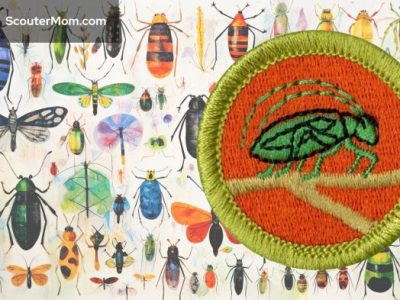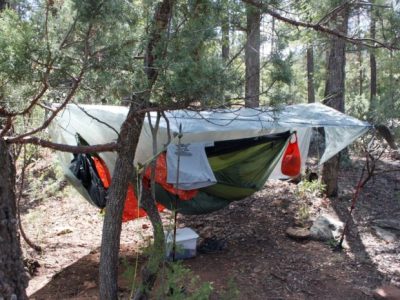Scout camping hygiene best practices are paramount for maintaining health and well-being in the wilderness. This guide provides comprehensive tips and techniques for ensuring a clean and sanitary camping experience.
From personal hygiene practices to campsite sanitation, this guide covers all aspects of hygiene while camping. By following these best practices, scouts can minimize the risk of illness, protect the environment, and enjoy a safe and enjoyable camping trip.
Personal Hygiene Practices
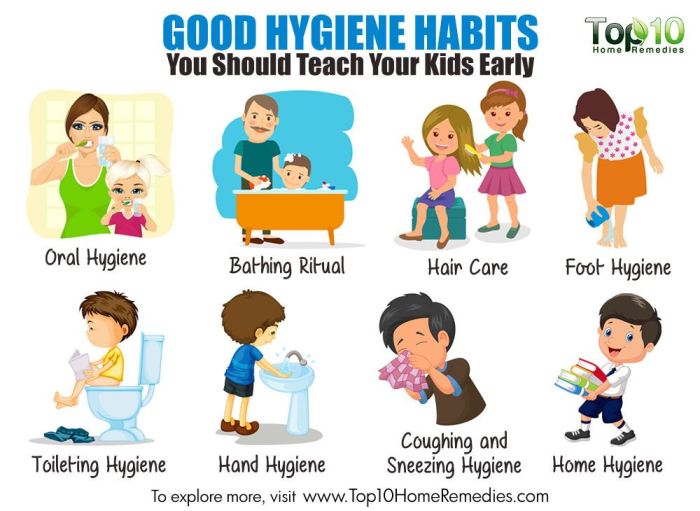
Maintaining personal hygiene while camping is crucial for overall health and well-being. Proper practices help prevent the spread of germs, reduce the risk of infections, and ensure a comfortable experience in the wilderness.
Handwashing and Sanitizing
Regular handwashing with soap and water is essential to remove dirt, bacteria, and viruses. If soap and water are unavailable, use an alcohol-based hand sanitizer with at least 60% alcohol content. Sanitizers should be applied to the palms, rubbed together, and allowed to air dry.
Oral Hygiene
Maintaining oral hygiene while camping is equally important. Brush your teeth twice a day with a fluoride toothpaste. Flossing removes food particles and plaque between teeth. Use mouthwash to kill bacteria and freshen breath. If you don’t have access to a toothbrush, rinse your mouth with water or use a biodegradable dental wipe.
Menstrual Hygiene, Scout camping hygiene best practices
For women, managing menstrual hygiene during camping requires preparation. Bring enough pads or tampons, and dispose of them properly in a designated waste bag. Wash your hands thoroughly after handling menstrual products. If you don’t have access to a toilet, dig a small hole and bury the used products.
Clothing and Gear Maintenance
Maintaining proper hygiene while camping extends beyond personal cleanliness to include clothing and gear maintenance. Understanding how to clean and store clothing, as well as keeping gear clean and dry, is crucial for a comfortable and safe camping experience.
Moisture-Wicking Fabrics
Moisture-wicking fabrics are essential for camping as they help regulate body temperature and keep campers dry. These fabrics draw moisture away from the skin, allowing it to evaporate quickly, preventing discomfort and potential health issues like chafing or hypothermia.
Waste Management
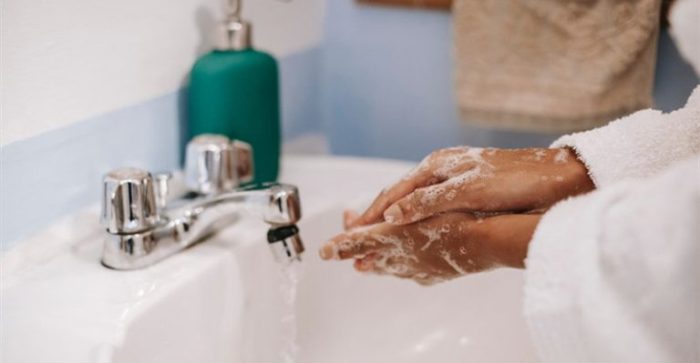
Waste management in Scout camping adheres to the principles of Leave No Trace, minimizing environmental impact and preserving wilderness areas. Proper waste disposal is crucial to protect ecosystems and ensure a clean and enjoyable experience for all campers.
Human Waste Disposal
Human waste should be disposed of responsibly to prevent contamination and promote sanitation. Dig a hole 6-8 inches deep and 6 inches wide, at least 200 feet from water sources and trails. Deposit waste into the hole and cover it completely with soil.
Garbage and Recyclables
Garbage and recyclables should be separated and disposed of properly. Designate specific containers for each type of waste. Pack out all garbage, including food scraps, wrappers, and containers. If recycling is available at the campsite, follow the designated guidelines.
Water Treatment and Hygiene
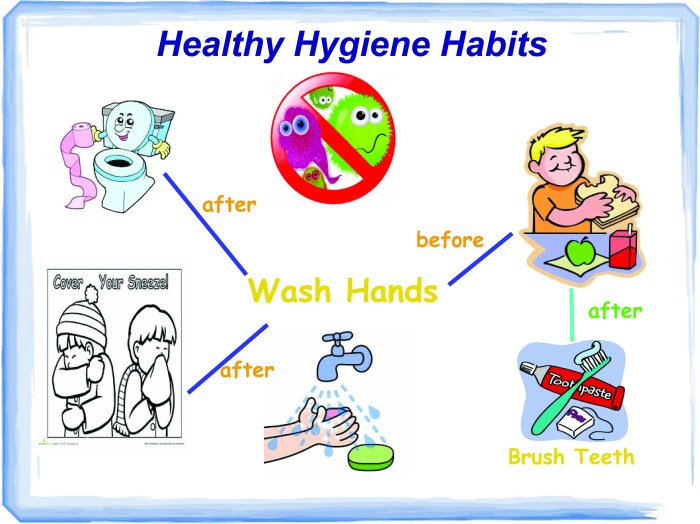
Water is essential for survival, and it is important to ensure that the water you drink is clean and safe. In the wilderness, there are many potential sources of water contamination, including bacteria, viruses, and parasites. Water treatment is the process of removing these contaminants from water to make it safe to drink.
There are a variety of different water treatment methods available, each with its own advantages and disadvantages. Some of the most common methods include:
Filtration
- Boiling:Boiling water is the most effective way to kill bacteria and viruses. However, it is not always practical to boil water in the wilderness, especially if you are short on fuel.
- Chemical treatment:Chemical treatment can be used to kill bacteria and viruses in water. However, it is important to use the correct dosage of chemicals, as too much can be harmful.
- Filtration:Filtration can be used to remove bacteria, viruses, and parasites from water. There are a variety of different filters available, each with its own advantages and disadvantages.
Storage and Handling
Once you have treated your water, it is important to store it properly to prevent recontamination. Here are a few tips for storing and handling water:
- Store water in clean, sealed containers.
- Do not store water in direct sunlight.
- Keep water cool, but do not freeze it.
- Discard any water that has been stored for more than a few days.
Campsite Sanitation
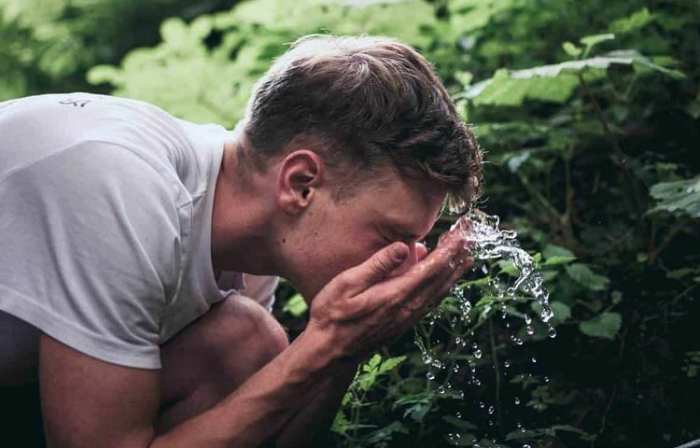
Maintaining a clean campsite is crucial for the well-being of campers and the preservation of the environment. Here are some best practices for campsite sanitation:
Food Waste Management
Improper food waste disposal attracts pests and can contaminate water sources. Store food in airtight containers, and dispose of waste in designated bins or by packing it out. Avoid burying food waste, as this can attract animals.
Pest Prevention
To prevent pests, keep food and garbage away from tents and sleeping areas. Use insect repellent and avoid leaving food or scented items outside overnight. Seal any openings in tents and sleeping bags to keep insects out.
Environmental Impact
Minimize your environmental impact by using biodegradable soap and cleaning products. Dispose of wastewater in designated areas or bury it at least 200 feet from water sources. Pack out all trash, including toilet paper and hygiene products, to prevent wildlife encounters and pollution.
Final Thoughts: Scout Camping Hygiene Best Practices
Maintaining proper hygiene while camping is essential for both personal health and environmental preservation. By adhering to the best practices Artikeld in this guide, scouts can ensure a clean, healthy, and sustainable camping experience.
Answers to Common Questions
Q: How often should I wash my hands while camping?
A: Wash your hands thoroughly with soap and water at least 10 times per day, especially after using the toilet, handling food, or coming into contact with wildlife.
Q: What is the best way to purify water while camping?
A: The most effective way to purify water is to boil it for at least 1 minute. You can also use water purification tablets or a water filter.
Q: How can I minimize environmental impact while camping?
A: Follow Leave No Trace principles by packing out all trash, using biodegradable soap, and avoiding disturbing wildlife.

